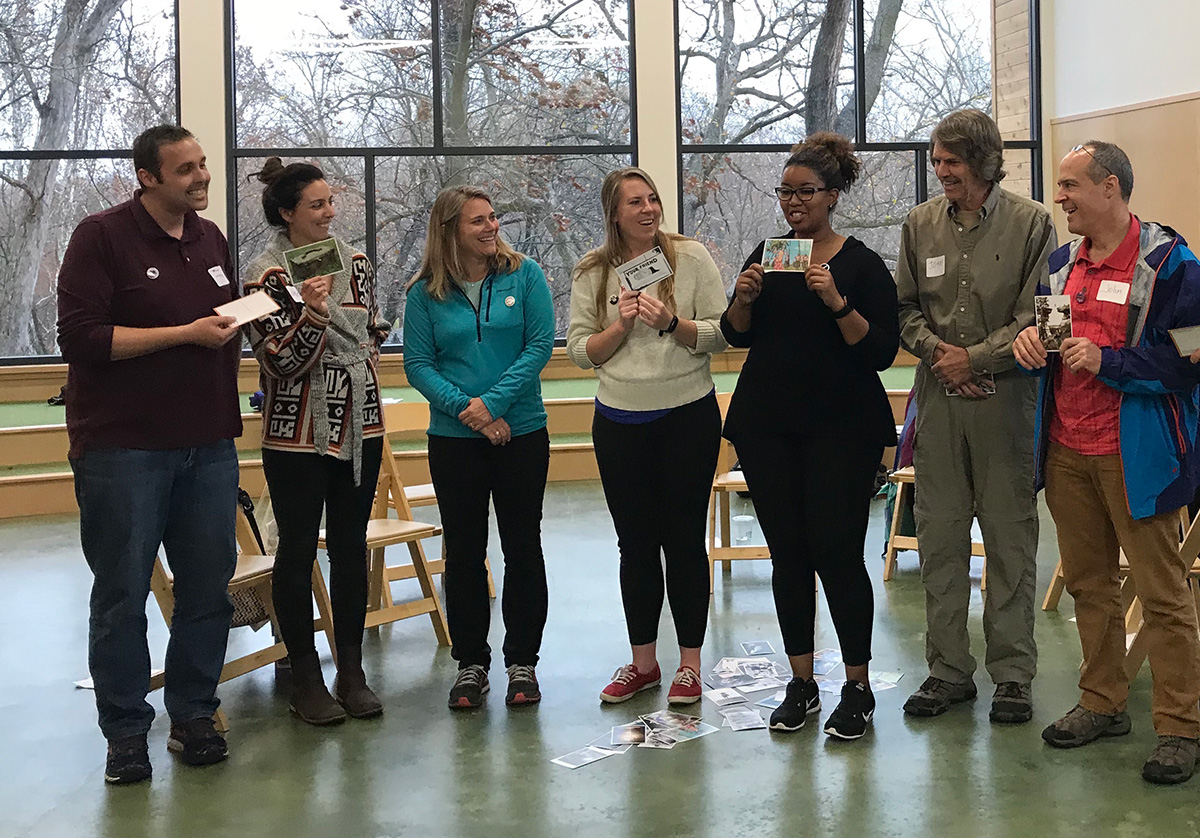Join this interactive workshop and take away both practical strategies to enhance your toolbox and a deeper understanding of the “why behind what you do” in facilitation. Explore brain-based techniques to create meaningful and impactful experiences including information from the neuroscience field about engagement and buy-in that will inspire new perspectives on your role and style as a facilitator.
We will explore:
•Experiential, brain-based strategies to actively engage learners physically, emotionally, socially and intellectually in academic, social-emotional learning, training, or therapeutic content
•New research from the field of educational neuroscience that supports and informs experiential education, facilitation, group development and social-emotional learning
•Novel and dynamic techniques to teach, review and reinforce training and academic content that help learners apply material in meaningful, relevant ways.
•Strategies for increasing involvement, buy-in, and ownership of learning and group development experiences
•Fundamentals of experiential group facilitation such as the importance of participant choice and control, sequencing, ongoing assessment, and meaningful reflection to create lasting lessons
•Interactive activities to build community and promote social and emotional learning, while enlivening lessons and differentiating instruction
•A variety of group-building activities to develop rapport, respect, positive communication, problem-solving, collaboration, and creativity
•Methods to help educators and facilitators design, sequence, facilitate and adapt activities to enhance learning outcomes and take advantage of “teachable moments”
•Innovative reflection tools and techniques to increase relevancy, meaning, depth of understanding, and connection to future learning situations
•The role of the facilitator as guide, and the importance of flexibility, attitude, adaptation, and awareness of group and individual needs and differences
These activities can be facilitated in any size space with simple materials. They can be adapted to varying ages, settings, and abilities. Participants will take away strategies that will help them build a positive environment for learning, develop social-emotional skills, actively engage learners, and promote a positive culture in their group sessions, school or workplace.
Tuition includes lunch and a copy of one of Jen Stanchfield’s latest books: Tips & Tools for the Art of Experiential Group Facilitation or Inspired Educator, Inspired Learner.
To Register: visit experientialtools.com
